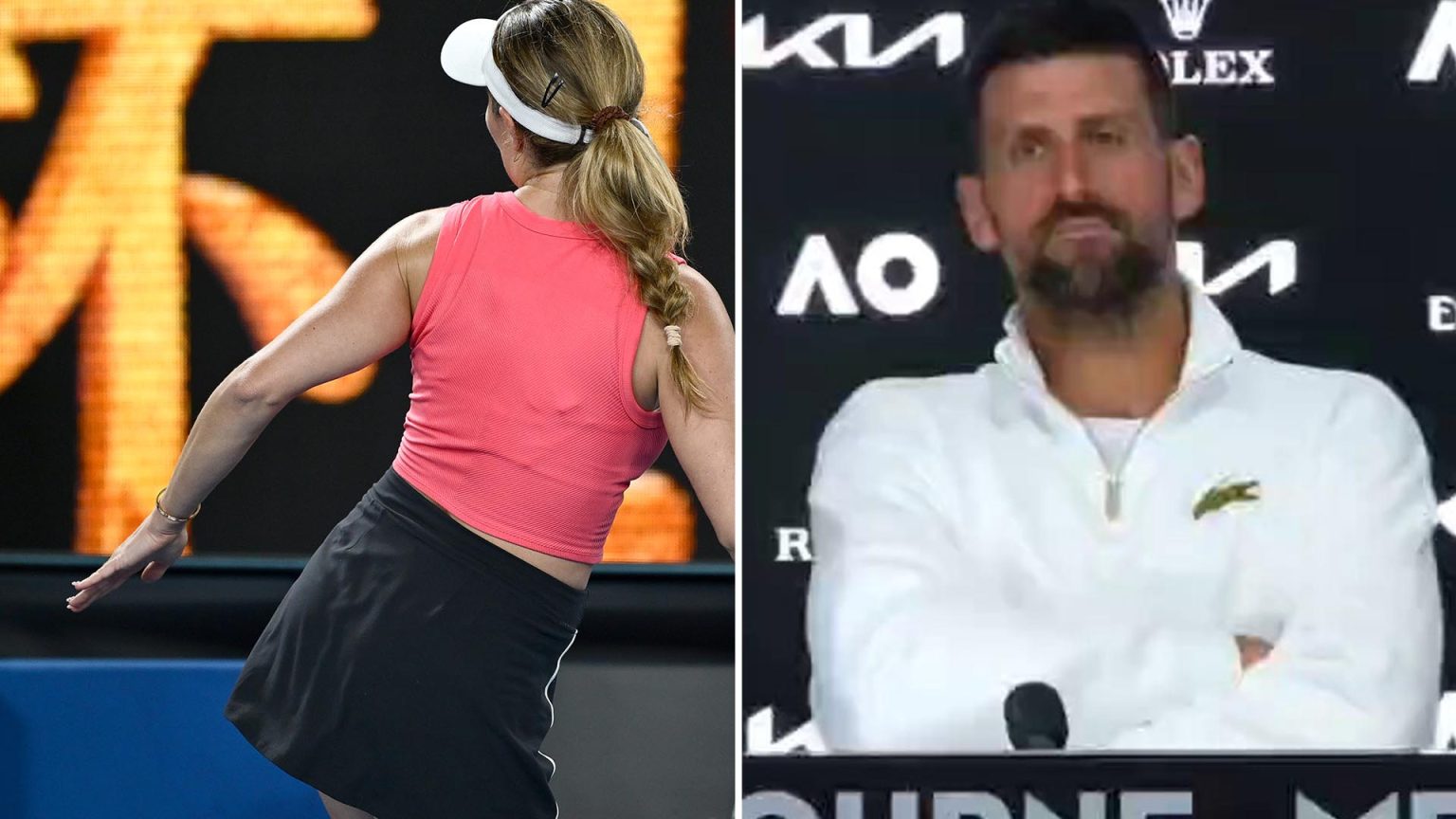Danielle Collins’ spirited interaction with the Australian Open crowd following her victory over Destanee Aiava has garnered both criticism and praise, notably from tennis legend Novak Djokovic. After a hard-fought three-set match, Collins found herself facing a boisterous and arguably inebriated crowd that responded to her victory with jeers. The American tennis star, rather than shrinking from the negativity, embraced it with a touch of playful defiance. She responded to the boos with blown kisses, cupping her ear to the crowd, and a cheeky smack to her backside, all capped off with a provocative “How about that?” Her subsequent comments, in which she thanked the crowd for contributing to her “big fat pay cheque” and future “five-star vacation,” further fueled the controversy. Collins’ unapologetic stance, highlighting how her detractors inadvertently support her financially, cemented her image as a bold and outspoken personality.
This incident sparked debate about the appropriateness of Collins’ response and the behavior of the Australian Open crowd. Some criticized her actions as disrespectful and unprofessional, while others applauded her for her confidence and refusal to be intimidated. The incident highlights the complex dynamic between athletes and fans, particularly in high-stakes sporting events where emotions run high. It raises questions about the acceptable limits of crowd interaction and whether athletes are obligated to maintain a certain decorum, even in the face of negativity. Collins’ actions, though controversial, arguably reflect a growing trend of athletes pushing back against hostile crowds and engaging in more direct and unscripted interactions.
Novak Djokovic, a dominant force in Australian Open history, emerged as an unexpected champion of Collins’ response. The Serbian star, who himself has experienced his share of contentious moments with the Australian crowd, expressed his admiration for Collins’ audacity and wit. He declared himself a “big fan,” lauding her as “funny, smart,” and appreciating her unflinching attitude. Djokovic’s endorsement added another layer to the narrative, transforming a potentially isolated incident into a commentary on athlete-fan relationships and the pressures of performing under public scrutiny. His support for Collins underscores the idea that athletes are not simply performers but individuals with their own personalities and reactions, which are sometimes amplified under the spotlight.
Djokovic’s own journey at the 2024 Australian Open mirrors the complexities of navigating public perception and performance pressures. Despite battling a stomach bug, he convincingly defeated Tomas Machac in straight sets, demonstrating his resilience and determination. His quest for an unprecedented 11th Australian Open title is unfolding against a backdrop of past controversies, including his 2022 deportation due to his vaccination status. This history has created a complex relationship with the Australian crowd, marked by both fervent support and lingering resentment. Djokovic’s navigation of this dynamic, his focus on his performance amidst external pressures, parallels the challenges faced by Collins in managing her own interactions with the crowd.
The incident involving Danielle Collins serves as a microcosm of the broader dynamics at play in professional sports. It underscores the intense scrutiny athletes face, the pressures of competing on a global stage, and the evolving nature of athlete-fan interactions. Collins’ response, whether deemed appropriate or not, sparked a conversation about these very issues, highlighting the emotional toll of high-stakes competition and the right of athletes to express themselves, even in unconventional ways. Djokovic’s public support further amplified this discussion, adding the perspective of a veteran athlete who has navigated similar challenges.
The ongoing Australian Open, with its passionate crowds and high-profile matches, continues to be a stage for not only athletic prowess but also the human drama that unfolds alongside it. The incident involving Collins and Djokovic’s subsequent endorsement add another chapter to the rich tapestry of the tournament’s history, raising questions and sparking debate about the relationship between athletes, fans, and the ever-evolving landscape of professional sports.




